The Church Must Play A Creative And Prophetic Role In Brexit!

Will the anchor hold?
The E.U. Referendum result has created a political and social tsunami in these islands and indeed throughout the rest of Europe. The familiar landmarks and anchor points of the UK Union appear to be under great strain.The ground has shifted from under our feet to such an extent that it will be a miracle, if the anchor holds.
Apart from the financial markets which have taken a serious dip, the anchor points of mutuality and interdependency that have held Scotland and England together for over 300 years now seem no longer fit for purpose. Politically Scotland sees her future being linked into Europe, while a slim majority in England believe their future lies outside of Europe. How we manage this sizeable gap in the thinking between both countries will call for "cool heads and warm hearts".
The Church of Scotland can be prophetic
At this time of great uncertainty, I believe the Church of Scotland has a prophetic role to play within the nation. When we see political leaders acting wisely, for the good of all in Britain, we have a duty not only to say so, but to contribute to the conversation, giving additional theological and moral support to the argument. The First Minister of Scotland has, in the eyes of so many people,acted and spoken with authority and integrity on the issue of Scotland being taken out of Europe, against the will of the majority in Scotland. In doing so she has gained great respect across many European Capitals; and indeed across the political divide in Westminster itself. She is the one politician who seems to be acting as the official opposition spokesperson for the UK.
I wish her and the Scottish Government much success as they seek to keep Scotland in Europe. In doing so, she may be saving England from an own goal. If not she may go down in history as Scotland’s first Prime Minister.
Critiquing Europe
The European Union has become the whipping boy for everything that has gone wrong with our political decision making. Our politicians, on all sides of the party divide, at different times over the past forty years have drip fed the public a metaphor of a Europe that is undemocratic and wasteful. Is it small wonder that the vote went they way it did?
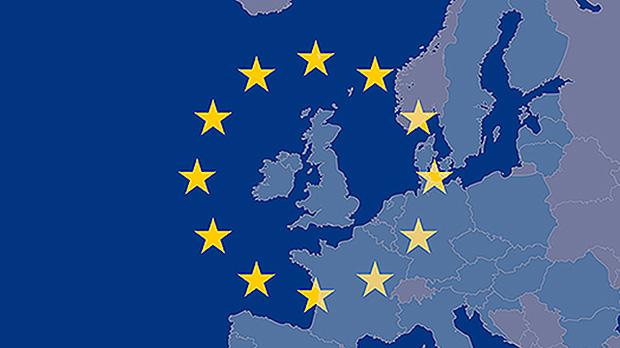 In critiquing the European project, too many of our politicians have focused on issues that could be described as the "low hanging fruit", the topics that press emotional buttons, and give quick sound bites, to those who long for an era long past. Themes like loss of sovereignty, or the unaccountability of EU mandarins, always play well in certain quarters, especially where people feel disengaged from the changes in the culture around them. However the same arguments could be made against a Westminster-based government that has supported an unelected House of Lords and has only recently begun to devolve more power to the home nations.
In critiquing the European project, too many of our politicians have focused on issues that could be described as the "low hanging fruit", the topics that press emotional buttons, and give quick sound bites, to those who long for an era long past. Themes like loss of sovereignty, or the unaccountability of EU mandarins, always play well in certain quarters, especially where people feel disengaged from the changes in the culture around them. However the same arguments could be made against a Westminster-based government that has supported an unelected House of Lords and has only recently begun to devolve more power to the home nations.
The ideals and the aspirations of a Europe where nations are at peace with one another, is an invaluable blessing to all. Too many of us have failed to speak of the importance of the bigger picture - the benefits that come from shared resources and vision between nations; e.g, a Europe without borders, a Europe where all are welcome to work and prosper. Yes, a Europe that may well stretch our generosity, but which in the end will pay dividends of peace and harmony, and return to the community a loyalty and gratitude from all its citizens.
Bringing the Kingdom in
It comes to mind that the Christian Church is called to model such an ideal; we are called to live believing the Kingdom of God has come. This was the message of the early church. A Kingdom open to all, remember Jesus said, "Whosoever comes to me I will never turn away". It is a Kingdom where all barriers and walls have gone. This is a Kingdom where no one is a stranger for all are known to the King. This is what we are modelling in the church, so we sing;
Let us build a house where love can dwell
and all can safely live,
how hearts learn to forgive.
Built of hopes and dreams and visions,
rock of faith and vault of grace;
here the love of Christ shall end divisions:
all are welcome in this place.
Let us build a house where prophets speak,
and words are strong and true,
where all God's children dare to seek
to dream God's reign anew.
Here the cross shall stand as witness
and as symbol of God's grace;
here as one we claim the faith of Jesus:
Let us build a house where love is found
in water, wine and wheat:
a banquet hall on holy ground
where peace and justice meet.
Here the love of God, through Jesus,
is revealed in time and space;
as we share in Christ the feast that frees us:
Let us build a house where hands will reach
beyond the wood and stone
to heal and strengthen, serve and teach,
and live the Word they've known.
Here the outcast and the stranger
bear the image of God's face;
let us bring an end to fear and danger:
Let us build a house where all are named,
their songs and visions heard
and loved and treasured, taught and claimed
as words within the Word.
Built of tears and cries and laughter,
prayers of faith and songs of grace,
let this house proclaim from floor to rafter:
All are welcome, all are welcome
All are welcome in this place.
So how can we possibly talk of supporting political theories that run contrary to our theology of the Kingdom of God? It is because we have this ideal and metaphor of peace to proclaim to the world, i.e.holding up the image of the lion and the lamb, that we the church need to support and encourage leaders and thinkers to embrace, the picture of the lamb on the throne. It is our responsibility to help the fearful see the significance of the metaphor, of power being made perfect in weakness.
Are we not all citizens of the world?
I heard a comment from a Brexit voter on a news programme today, he said, that the UK has become "a dustbin for Europe". I felt sad when I heard these words, but then I began to think, a great deal of treasure can be found in a dustbin. The apostle Paul talks about treasure found in pots of clay. How we should grieve for those who with such confidence and arrogance wish to disregard the poor and the vulnerable as garbage - dismissed in a phrase - placed in a dustbin. It brought to mind the text "the stone the builders rejected has become the cornerstone". What wonderful treasure was given to this nation when the Westminster Parliament was shamed into agreeing, after much debate to receive 3000 orphaned refugee children. I truly believe many of them one day will bring great prosperity and grace to our nation. Are we not all people of great value, loved and embraced by God our Father, regardless of where we were born? Are we not all citizens of the world with obligations to one another?
The ancient Hebrew story of Joseph sold into slavery by his own family, discarded and rejected becomes an allegory of how God uses the weak and the powerless to become stars in his Kingdom. The Bible is littered with stories and metaphors that highlight the good when a nation or a person acts selflessly towards another, blessings will flow from reckless generosity. The story of the widow and her cruise of oil, or the parable of the Good Samaritan or the Prodigal Son, all underscore the philosophy or theology of grace that is encountered throughout the Bible.
Too much of the argument and reflection to date has centred around economics and the fear of the unknown. I believe the church can offer an alternative method of communicating ideas when wrestling to find the truth. We need to learn from Jesus. It was his ability to tell stories, to offer metaphors of hope and renewal, that made his ministry powerful and prophetic. The Church needs that same kind of voice today. We need to become the story tellers, helping our fellow citizens to hold on to what still remains of the good, and press on to the greater goal.
Finding the Kingdom stories
If we only speak facts and figures we will only connect with a certain percentage of people who tune into the significance of this kind of information. For many it is too abstract. Figures can be disputed and even forgotten. However there is another way to communicate ideas and that is through stories hence the 'Jesus' reference above.
The communicator who tells a story that connects pictures and emotions engages the listener to begin to relate what they hear to what they have experienced. The listener will be challenged to act in response to what they have understood.
We cannot leave vision building simply to politicians, to use meaningless figures and statistics to convey an understanding of the future. Surely this is a momentous moment for the church in Scotland and the UK - but especially the Church of Scotland. We can offer an alternative way of engaging with politics. We can take a leading role in telling stories and sharing metaphors of how the nation can find a healing and viable connection with the ideals and the aspirations of a Europe where nations are at peace with one another. It is this vision that has been an invaluable blessing to all. It is such a voice as this that can contribute to making the world a better place for all to live in.
The Church has always had a world vision. Its interests lie beyond national boundaries and borders. The Kingdom of God is never about get it right for our nation or our people. Its about getting it right for every person!
World Citizenship
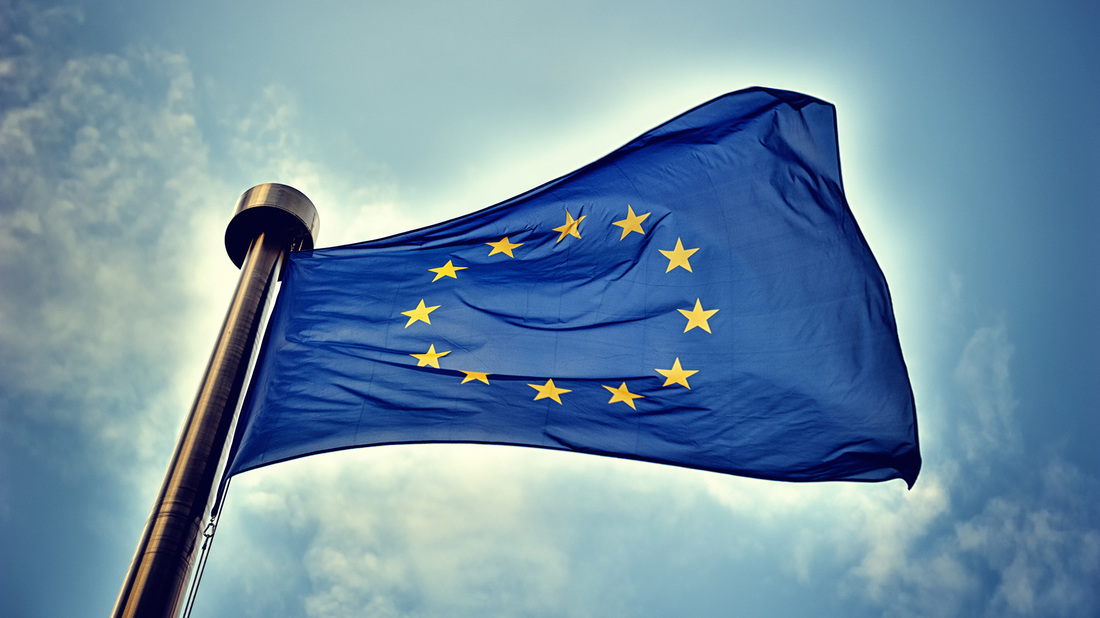 The EU Referendum has stirred up a debate that is raging in capital cities around the world . Many are asking what it means to be either a citizen of a nation state or a citizen of the world? It is interesting that the Church of Scotland has congregations in nearly every capital city of Europe. You may ask why? The answer is that Scots have been adventurers all their days. Our forefathers emigrated to all parts of Europe from France to Poland. It would seem to me that we have much to gain from ensuring our links with these congregations are maintained and strengthened at this time. A number of them are without ministers and it may be ‘for a time as this’ that God is calling ministers to see the importance of keeping the Reformation light burning bright in Europe, especially as we come to celebrate the 500th anniversary of Luther. The next time someone asks of you; “what has Europe ever done for us ? ” Remind them that it was a reformation which started in Europe that brought about the establishment of the Church of Scotland as a reformed church. Those within the church who contemplate from time to time the idea of the Church of Scotland withdrawing congregations from Europe should think again of the significance and importance of these ties for the whole nation.
The EU Referendum has stirred up a debate that is raging in capital cities around the world . Many are asking what it means to be either a citizen of a nation state or a citizen of the world? It is interesting that the Church of Scotland has congregations in nearly every capital city of Europe. You may ask why? The answer is that Scots have been adventurers all their days. Our forefathers emigrated to all parts of Europe from France to Poland. It would seem to me that we have much to gain from ensuring our links with these congregations are maintained and strengthened at this time. A number of them are without ministers and it may be ‘for a time as this’ that God is calling ministers to see the importance of keeping the Reformation light burning bright in Europe, especially as we come to celebrate the 500th anniversary of Luther. The next time someone asks of you; “what has Europe ever done for us ? ” Remind them that it was a reformation which started in Europe that brought about the establishment of the Church of Scotland as a reformed church. Those within the church who contemplate from time to time the idea of the Church of Scotland withdrawing congregations from Europe should think again of the significance and importance of these ties for the whole nation.
Without doubt the Referendum result has created a political and social tsunami. Everything now seems up for grabs. There is a new vista on the horizon. When the mist clears away it is my hope that there will be a clear view - with no walls to be seen.




 Add to Favourites
Add to Favourites
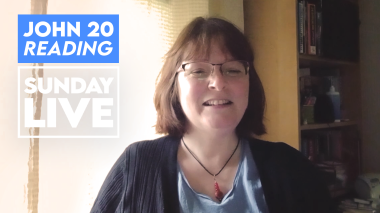
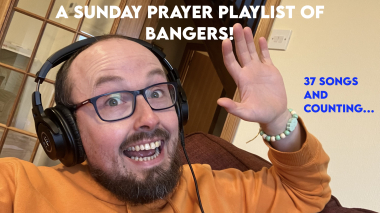



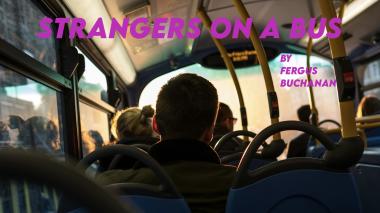
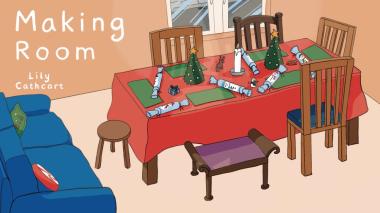
Login to comment.